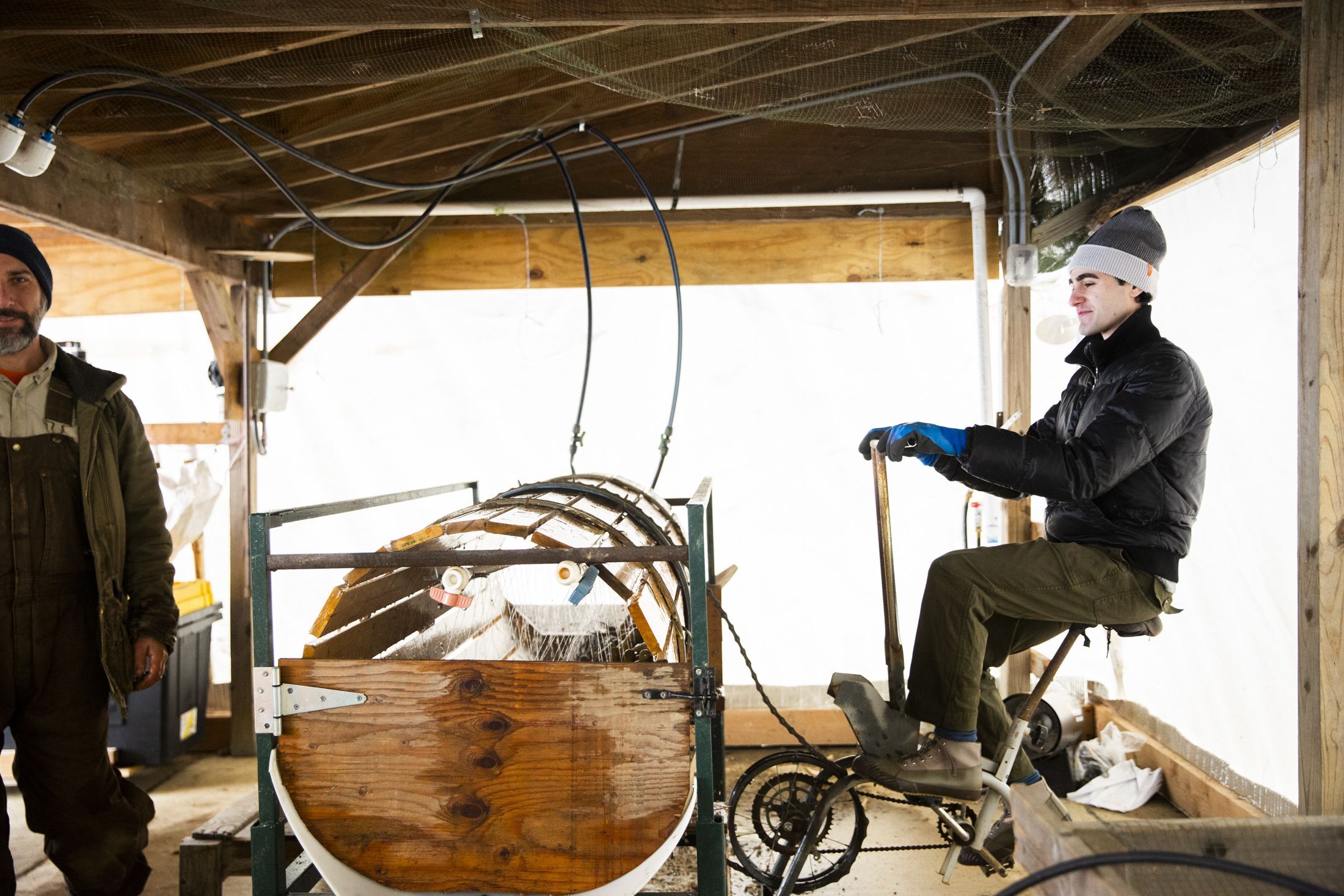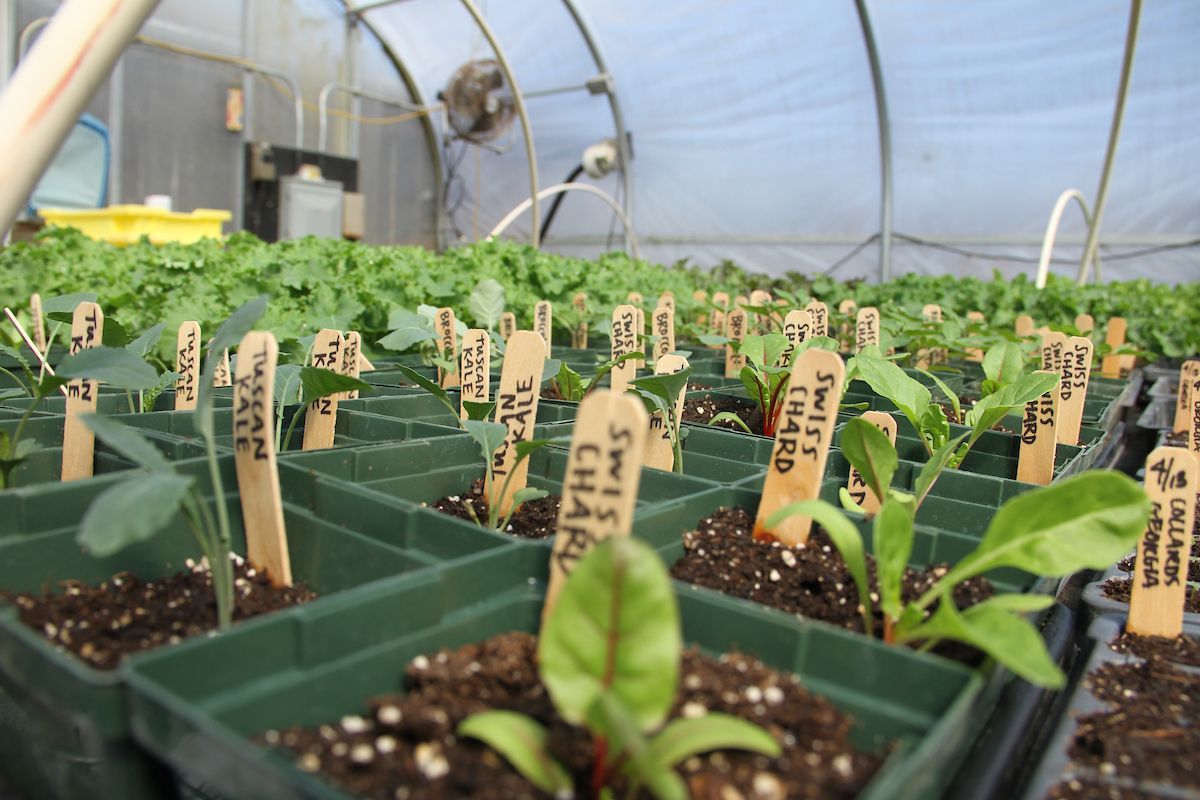
When Friday noon rolls around, the hum and hustle of a lively afternoon at Glynwood’s Farm Store begins to find its steady rhythm, like good background music in my ears. I flick on the lights, set a tall stack of logs aflame, then go out and pull the bins holding today’s harvest inside. Heavy as they are, flipping open a snap-lock bin sent by the Vegetable Team can feel like unwrapping a present. Inside the first one I open, 10 heads of red cabbage glisten in their snug pile: small and large, circular and oblong, they radiate a still-alive energy. Popping open another bin, I find a vibrant spectrum of microgreens puffed up in plastic bags like those harboring goldfish at a carnival.
After this past year at Glynwood, I treasure our produce, though I know only morsels of what really goes into it. It’s clear that bringing good food to market requires time and care beyond the field, too, but I’ve long wondered what it takes to bring the harvest to organized, store-ready cleanliness. When farmers Jarret and Leah asked me to assist them at the Wash/Pack Shed during our apprenticeship’s absence, I got my chance to find out.
Now, Thursday mornings at Glynwood have become profoundly grounding to my understanding of our vegetable operation and the less visible aspects of food production that carry on like clockwork around the farm. That’s because every Thursday I head straight to Wash/Pack, the crucial space where produce gets prepared for distribution. Arriving with several layers of warm clothing and hours to spare, I settle into a different type of workflow. Leah syncs her phone’s music to the four-foot lightbox speaker hanging overhead and orients me to the list of 15 odd vegetables in this week’s CSA share. I skim the harvest list and jump right in. In the back corner, pillow-sized bags of vegetables sit on a wooden bench, waiting to be cleaned. After Jarret pours a bushel of dirt-covered carrots into the barrel, I grip the handles of the bicycle-powered root washer and pedal, pedal, pedal. Gritty brown water pours through the barrel’s cracks until it gradually goes clear, the carrots revealing they’re orange as ever. We rinse and repeat, checking off our list as we wash: black radishes, purple top turnips, kohlrabi, and parsnips. Next are the spun-dry greens, verdant with life and ready to be bagged and bundled for sale. It can be a testy flow of weighing, bagging, and spinning to tie, but it’s one that, with practice, I’ve developed some muscle memory for.
At the end of a long day, I’m back in my home kitchen, still spinning bags to a tight knot so that they sit delightful and ready in my refrigerator, too. Working at Wash/Pack has enriched the ways in which I can serve as a connector between our farm and community, and I am certain our vegetables taste even more delicious to me because of that.

